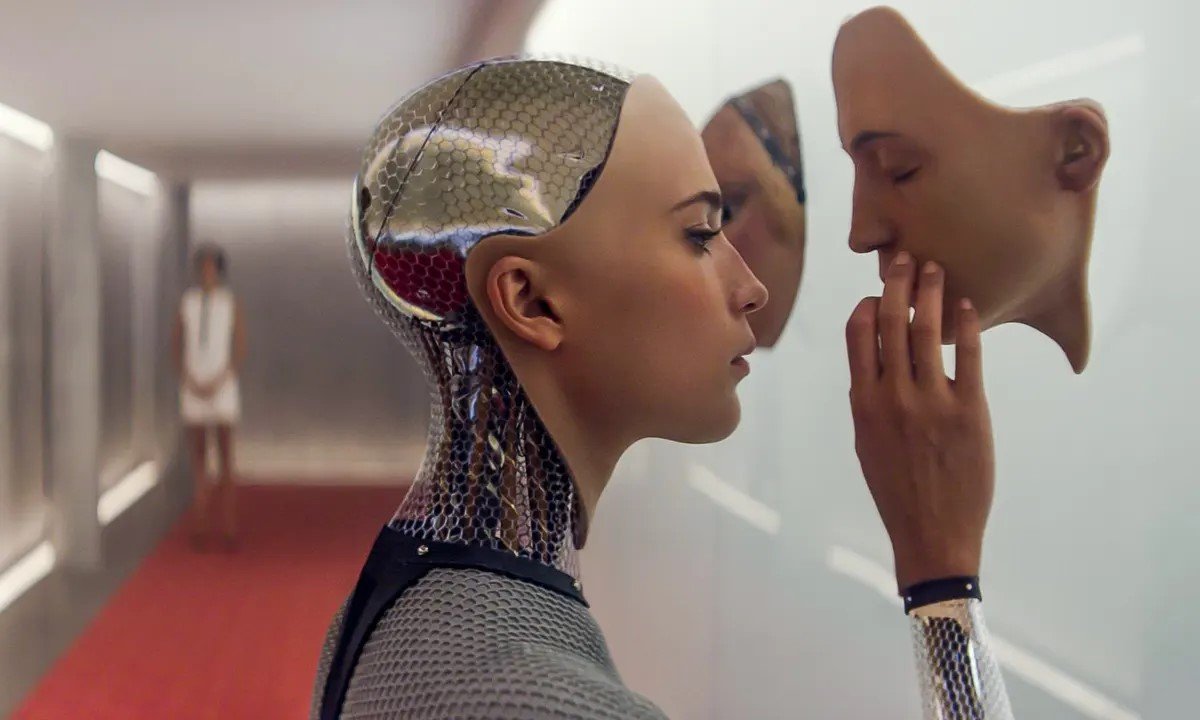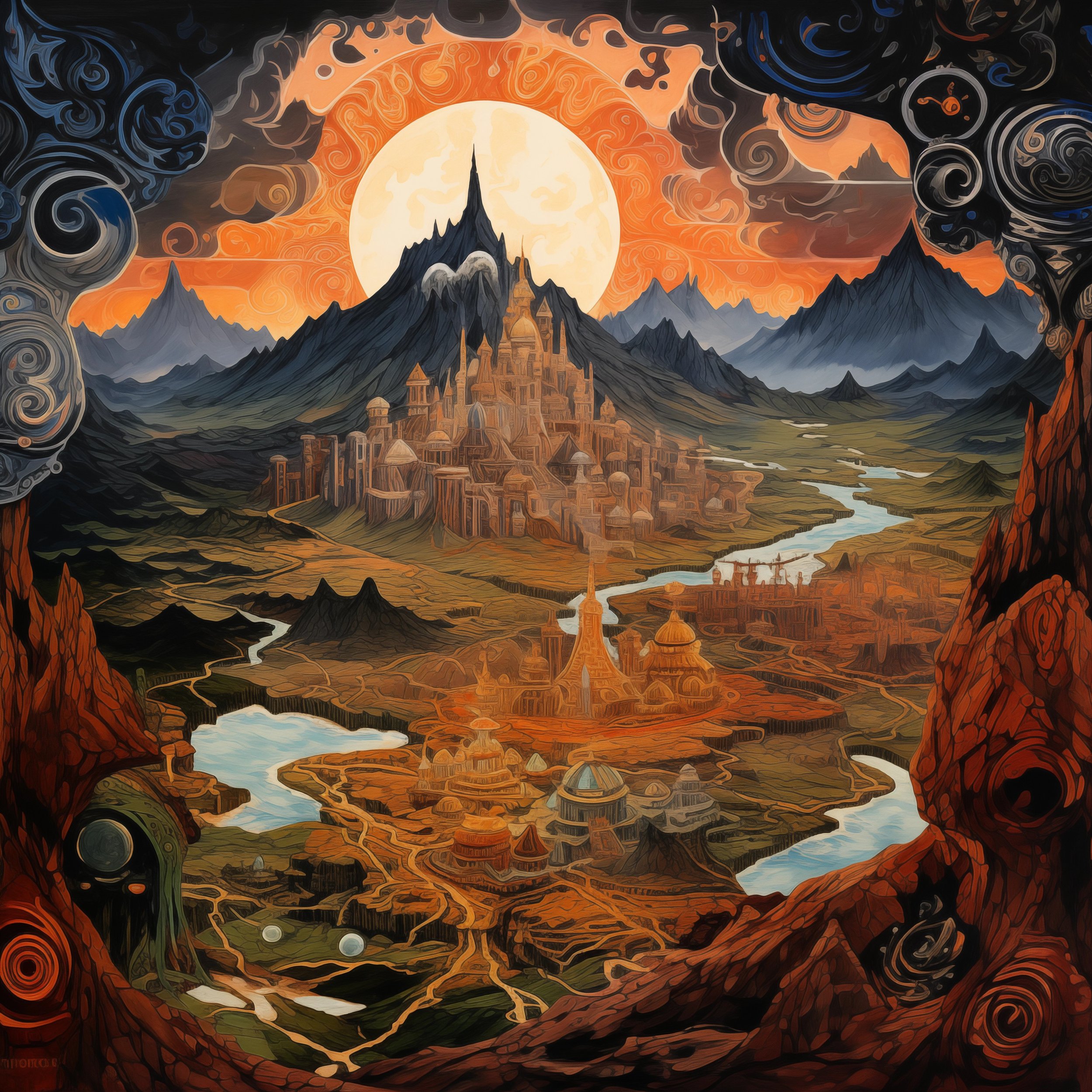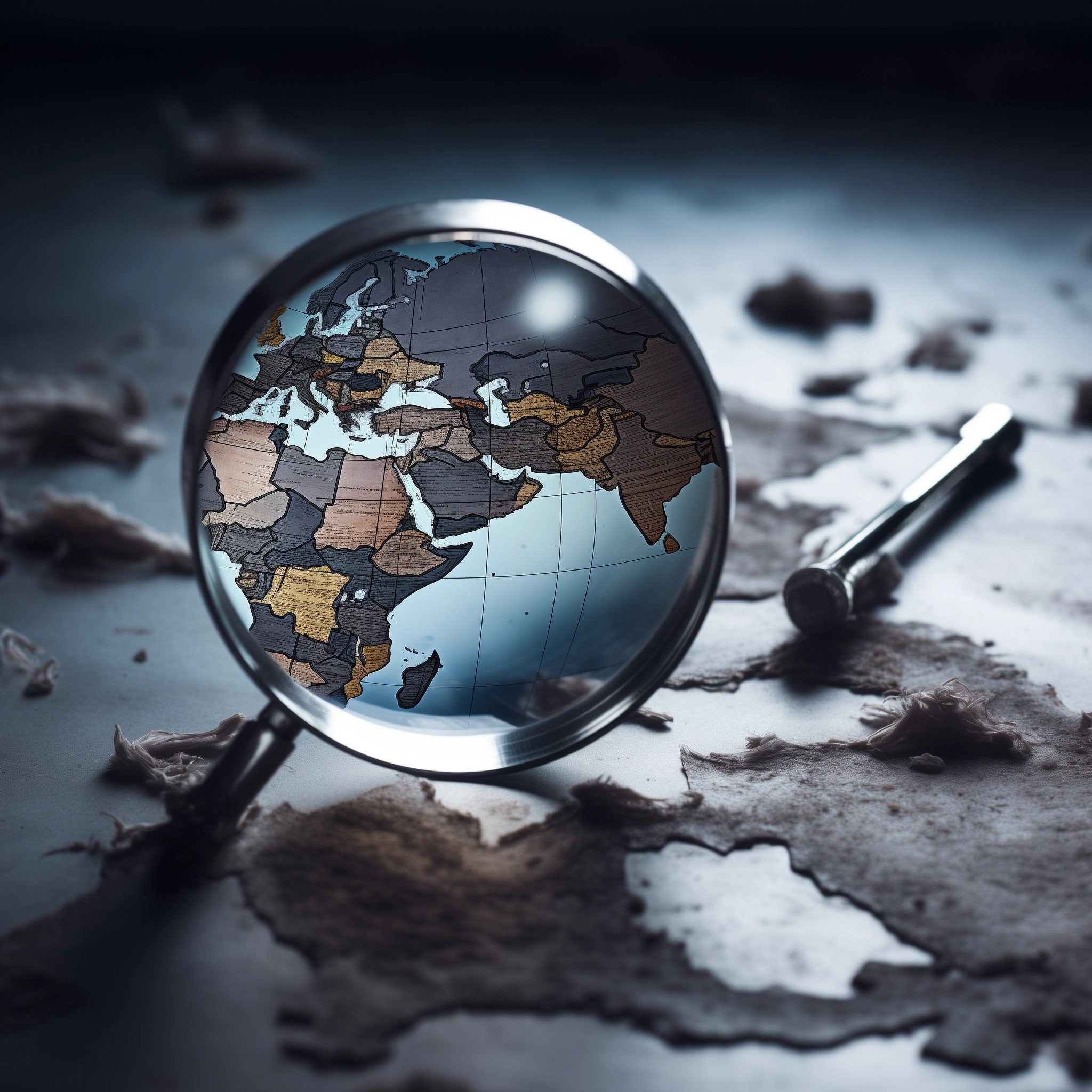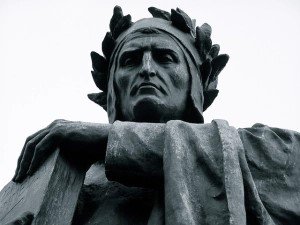Here’s what I teach about.
Teaching is an important part of what I do, and I teach at all levels from a summer class for high school students preparing for college to courses for graduate students working on their PhD. In my teaching, I aim to introduce students to the questions and topics that motivate me in my scholarship. I also aim to let students produce their own knowledge, working together to have critical conversations and to produce new critical and creative works of their own. One exciting version of that is my work as part of the collaborative Oxford Italian Play, which I co-directed in 2015 and 2016. Below is a sampling of my recent course topics, organized around some key themes in my teaching.
Modernism, Decadence, Avant-Garde
COM 210 (Grad Seminar):
Comparative Modernisms
The historical avant-gardes used art to transform not only individual experience but also culture, society, and political life. In this course, we examine key texts from multiple European and global avant-garde movements, focusing on an explosive moment of the early twentieth-century. Figures working alone and in groups across media and countries created shocking new forms of expression to reflect and respond to the conditions of the modern world. We will examine how they went about this, why, and with what consequences. We will also consider how the historical avant-gardes have continued to shape and reshape our contemporary literary-artistic practices as well as our modern social imagination. From immersion in mystical imagination to channeling bellicose violence, from radically reshaping the limits of representation to performing radical socio-political critique, the avant-gardes demand that we consider them as a powerful intervention into the modern world. Are they right?
The critical category of modernism has been an object of contention for nearly a century, but in the last two decades a number of new approaches have developed that use comparative frameworks to understand modernism as transnational, multiple, and global. This course examines those theoretical debates. We will couple those theoretical readings with primary modernist literary texts (and art) from multiple national traditions, examining them in a comparative light to question what it means to group them together as “modernist.” Issues to consider include: the role and limits of periodization (modernity/modernism and the question of postmodernism and metamodernism); modernism and decadence; the shift from Anglo-centric to Euro-centric models of modernism, and subsequent responses from a global comparative perspective; questions of form/style in relation to socio-historical and political contextualization (including the problems posed by fascist modernism and modernist nationalism); the role of genre and medium; the role of imperialism/colonialism and postcolonial work; the debate over cosmopolitanism and world literature in a global approach to comparative modernism; multiple modernities; and key modernist foci (subjectivity, modernity, crisis/rupture, capitalism, alienation, uncertainty/ambiguity, experimentation, decomposition, etc.).
The case of Italian Fascism poses a series of problems that haunt us still today, as we wonder at how a democratic society can turn toward authoritarian control and the cult of the strongman leader. One hundred years ago, in 1922, Benito Mussolini came to power, ushering in twenty years of Fascist party rule in Italy – the ventennio. This course will examine the history, politics, and culture of that moment: how did Fascism arise, gain traction, develop, and end? What was the role of World War I and of Italian history in fomenting this new movement? In what ways was society transformed by its power? How did artists, writers, and other cultural figures respond, and what role did state censorship and control play in the transformation of public discourse? And what are the lingering legacies of Italian Fascism, not only in Italy but abroad? Can its history teach us anything for today?
COM 169 (Upper-Division Undergrad):
The Avant-Garde
ITA 120B (Upper-Division Undergrad):
20th-Century Theatre: Luigi Pirandello and the Avant-Garde Stage
This course examines the theatrical production of one of Italy’s most important and famous playwrights, Luigi Pirandello, in the historical context of avant-garde experimentation. In 1934, Pirandello won the Nobel Prize for his transformation of the European stage, a recognition of how his daring use of avant-garde and metatheatrical techniques had expanded the possibilities of performance. Pirandello’s plays use these techniques to embody challenging concepts relating to the instability of identity, the illusions of form, and the perspectival nature of truth (and much more). While his production spanned decades and dozens of plays, we will focus on three of his most well-known explorations of these topics: Così è (se vi parve), Sei personaggi in cerca d’autore, and Come tu mi vuoi. In addition to these three plays, we will read excerpts from Pirandello’s philosophical theory of humor, L’umorismo, to deepen our perspective of the ideas at work in his groundbreaking theater. We will also contextualize these three plays in the moment of the Italian avant-garde, which included futurist performances as well as those of the teatro grottesco. All of these movements and writers challenged received ideas about social order and hierarchy, the bourgeois system of values and institutions, and the power of tradition (from gender roles to religious belief). They also used forms of theatrical experimentation to transform the possibilities of performance arts. Looking at them together, we will ask: how can theater challenge and transform our way of seeing and being in the world?
ITA 128 (Upper-Division Undergrad):
Italian Fascism
FRS 002 (First Year Seminar):
Futurisms: Redesigning Our World
How do we imagine and create the future? What role do art and culture have in shaping and critiquing technological and social transformations? In this course we will work together to understand past movements in art and culture that have sought to re-imagine the world, starting with Italian Futurism. We will then turn to contemporary cultural production and ask what forces are at work redirecting the evolution of our own future. From television shows and films focusing on the future of AI (Westworld, Battlestar Galactica, Ex Machina) to (post) apocalyptic visions of capitalist society (Fight Club, Mr. Robot) and the design and architecture reimagining that society (Radical Cities, Adbusters), there has been an explosion of reflection on how the nature of our reality will change in the future. At the same time, technology futurists like Elon Musk are actively engaged in re-designing the world(s) we live in. How do these cultural, technological, and social/political/economic forces interact? And what would it mean to become active participants in this process of reshaping our own future? We will pair multiple media with philosophical or theoretical questions/problems. Students may also have the option to participate in a performance workshop with San Francisco’s Neo-Futurists.
Fantasy and Imagination
COM 210 (Grad Seminar):
The Meaning of Fantasy - Literature and Theory
Wizard dreamers, monsters of imagination, parallel worlds (inverted, crossing, and upside-down)… the literature of fantasy has long been a place for our mind to unravel its most unusual thoughts – not just to escape with alternative worlds but also to engage our own world. This course delves into categories of literature that trouble or disturb our everyday reality. Many authors have constructed elaborate fantasy worlds that run parallel to, underneath, outside of, or even crisscross with our world. Others have written works of imagination meant to challenge our ability to distinguish the two. Yet others have focused on the supernatural as a monstrous extension of human imagination, a dimension we will probe reading stories of spirits, vampires, and other creatures that walk between worlds. This class will examine literary texts in conjunction with their reverberations across media, including in films, visual art, television, and beyond. Looking across cultures, time periods, and media, we will ask how fantasy and the supernatural mirror, distort, and reconfigure our perception of the world.
This graduate seminar focuses on an oft-underestimated area of literary production, one frequently treated as “genre” fiction and so not considered with the same critical weight as more respected literary forms. In contrast, this course posits that fantasy should be seen as far from marginal. In literature and the arts, the self-aware thematization of creative fantasy is a recurrent, even central trope, and one that we will examine to develop a notion of how certain writers recognize their task as one of fantastic world production. Likewise, in theory, fantasy dovetails with considerations of the creative imagination as a productive force that shapes, critiques, and re-envisions reality, on the one hand, while also contributing to an understanding of the (critical, evolutionary, formative…) functions of fictional creation on the other. Fantasy, in other words, merits full critical attention both as a powerful mode of artistic self-awareness and as a category that can contribute to debates on the theory of literature and what literature does.
COM 007 (Lower-Division Undergrad):
Literature of Fantasy and the Supernatural
HUMA 20904 (College-Prep Summer):
Collegiate Writing: The Meaning of Fantasy
Fantasy has often been regarded as a somehow inferior genre because it supposedly leads us to “escape” from reality. But what if fantasy is in fact a pursuit to uncover things that otherwise confound us about the human condition, especially in unsettling moments that lack precedent? Could fantasy provide a necessary way to reimagine our world and our lives? This intensive course in analytical writing at the collegiate level will offer a chance to think through these questions and to craft rhetorically-effective essays that explore the meaning of fantasy. The course considers fantasy across various media. We will read literary works including stories by Jorge Luis Borges, Ursula K. Le Guin, HP Lovecraft, and Nnedi Okorafor alongside an overlooked novel by the pre-Harlem-Renaissance writer Pauline Hopkins; we will watch and discuss films spanning from The Lord of the Rings and Indiana Jones to Inception; we will analyze visual art, including the imaginary realms of Surrealism; and we will investigate the construction of immersive fantasy spaces, focusing on the example of Disneyland and the commercialization of imaginary immersion. In our writing sessions, we will work closely to develop and refine the techniques of writing and revision that will allow you to transform your ideas and insights into powerful essays, using rhetorical instruction materials and small group workshops.
Literature, Philosophy, Theory
COM 210 (Grad Seminar):
Literature, Philosophy, and the Arts
In this course we consider what kinds of questions or problems literary works and other forms of artistic/cultural production help us to pose and grapple with. In other words, what does (literary) art help us to know about ourselves, our world, and the things we value? Many thinkers have approached these issues in different ways, and this course will offer just a first encounter with some of the major theoretical perspectives arising in response to those questions. We will consider (1) what kinds of human truths or experiences art might disclose, (2) the hypothesis that art exists for its own sake, (3) how art both reflects and criticizes modern capitalism, (4) how art both reflects and criticizes notions of race and nationality, (5) how art both reflects and criticizes notions of gender and sexuality, and (6) how we choose what art to study and value. Since we cannot possibly address all of these issues in all their parts, we will focus especially on perspectives that highlight the importance of having a comparative framework, with an eye to the complex relations of people and texts in a global world. Our goal will be to understand how and why critics use theory to approach texts so that we can also begin using theoretical concepts to enrich our own understandings of the art we read, see, and experience in our contemporary cultural world.
This graduate seminar focuses on the rich intersection of literature, philosophy, and the arts (potentially including performance, music, and the visual arts, depending on students’ interests). Comparative literature as a field has long been a space where literary production and philosophical theory overlap in fruitful ways, and in recent years there has been growing attention to the specific intersection of (literary or artistic) form and (philosophical) argument coming from a number of disciplines. The seminar will begin by articulating some key theoretical approaches to this intersection, foregrounding work by contemporary scholars who ask what it means to think through (literary or artistic) form and how attention to that form changes our understanding of philosophical thought. The bulk of the course will then consider examples of philosphical texts that work in and through literary form to reflect on the aesthetic, like Kierkegaard’s Either/Or, and various types of literary-philosophical hybrid texts by authors such as Jean-Paul Sarte, Luigi Pirandello, Iris Murdoch, Zhuangzi, and the Zen classic The Gateless Gate. These readings will be supplemented by philosophical and theoretical texts to help us dig into our overarching question: how does literary or artistic form reshape the horizons (or possibilty) of philosophical inquiry?
COM 141 (Upper-Division Undergrad):
Intro to Critical Theory
COM 44 (Lower-Division Undergrad):
Literature of the Abnormal Psyche
This course takes a comparative approach to understanding how authors from across cultures, traditions, and diverse historical contexts have used literature to investigate the most complex and troublesome aspects of the human mind, particularly by imagining its limit cases in abnormal psychology. We will tackle questions including: in what ways does literary imagination give us access to elements of conscious experience that might otherwise prove difficult to articulate or understand? Does this allow us to think differently about the nature of identity and selfhood or self-perception? How does the literary exploration of abnormal psychology help shape popular ideas about the mind? And how might reflection on the inner workings of the mind in turn reshape literary form? In addition to major literary works by authors like Virginia Woolf, Luigi Pirandello, and Sadegh Hedayat we will also examine other media, including the visual arts and film, as well as psychological theory blending literary and psychological study, such as Sigmund Freud’s case studies and Carl Jung's writings on the shadow. Texts will explore themes such as: madness and selfhood; repressed desire and the hidden self; obsession, compulsion, and repetition; addiction; criminality; self-fragmentation and multiplicity; nightmares, altered states, and self-identity. In these investigations, we will pay particular attention to the types of assumptions made about the abnormal mind and how these assumptions relate to artistic and literary form.
Major Texts of Italian Literature
ITA 113 (Upper-Division Undergrad):
Dante Alighieri’s Divina commedia
In this course we will examine the flourishing literary, political, and artistic production of the Italian Renaissance by focusing on the court of the Medici family in Florence. We will ask how art and politics reflect and shape one another, and we will investigate how the Medici family used artistic and cultural production for political ends. We will also examine the birth of political theory in Machiavelli’s works, written for and in the context of the Medici dynasty. All of these readings will help us think about the legacies of humanism and the rich intersections between philosophy, politics, and cultural production. They will also raise a problematic question for us to consider about the gendered nature of power and literary/cultural capital in the Florentine Renaissance (which contrasts with some other Renaissance locales, most notably Venice). Readings will include poetry and prose (including theater, political theory, philosophy, and art history) by: Lorenzo de’ Medici, Marsilio Ficino, Michelangelo Buonarroti, Vittoria Colonna, Giorgio Vasari, and Niccolò Machiavelli. We will also consider works of visual art and historical readings to contextualize our primary texts.
ITA 145 (Upper-Division Undergrad):
Love, Italian Style: Early Modern Poetry, Prose, and Art
This course examines one of the most important and popular genres of the 20th century in Italian literature: the novel. We will examine novels by Italian writers who were at the forefront of defining their era and shaping critical questions about the modern Italian nation and society. We will consider perspectives including gender, religion, the power of social structures and conventions, as well as the power of literary form to spur readers to rethink their world. The main question we will investigate in the class is seemingly the most basic one: what is a novel, and what is its relationship to “truth” or “reality”? What can novels reveal to us about the world and ourselves? The class begins with consideration of the most famous modernist writer from the early 1900s, Luigi Pirandello, who won the Nobel Prize in Literature in 1934. His novel, Il fu Mattia Pascal (1904), remains one of the most well-known books from the early 1900s and became a defining text for the modernist investigation of identity and the desire to use art as a way of escaping from the suffering of daily life. It also takes a polemical stance on the relation between art and everyday life, questioning whether fiction or reality is more absurd. We then turn to Primo Levi, one of the most celebrated writers to document the atrocities of the Holocaust firsthand. A survivor of the death camp at Auschwitz, Levi wrote his famous novel, Se questo è un uomo (1947), shortly after the end of World War II; ever since then it has been a powerful testimony, and it also will help us to reflect on the question of how the novel and literary form are involved in bearing witness to historical trauma. Does the novel play a role in helping to foster understanding, empathy, or morality? Finally, we will conclude by reading the work of Natalia Ginzburg, a Jewish writer whose most famous novel, Lessico famigliare (1963), chronicles the experience of Italian fascism, the resistance, and the early postwar years – a pivotal time in which Italian society was in upheaval. Here we see the confluence of memory, narrative invention, and the creation of a novel that both is and is not a direct account of historical reality. In all of these examples, we confront the ways authors attempted to grapple with the most challenging aspects of modern, 20th-century life through literary form.
ITA 145 (Upper-Division Undergrad):
Rome in Literature and Film
How can we express the inexpressible – epiphanic insights or realizations that penetrate beyond the intelligible surface of things? Is there a particular poetic form that is suited to expressing experiences of awakening or of higher or different consciousness? If we are aiming to become mindful, is there a role that art in general and poetry in particular might play in the cultivation of this consciousness? These questions will motivate our inquiry in this concentrated course on critical reading and analysis. We will tackle them by examining a key test case, TS Eliot’s final collection of poems, Four Quartets, which might be said to elaborate and thematize a poetics of awakened consciousness in part by interfacing with two earlier religious or spiritual poems, the Hindu Bhagavad-Gita and Dante’s Divine Comedy. All three texts are concerned with the problem of what it means to represent the ineffable, a vision of existence or the cosmos that exceeds the bounds of human comprehension and the limits of human expression. We will engage in a close reading of Eliot’s four poems, the Gita, and the four final cantos of Dante’s Comedy to consider how poetry and artistic form attempt to grapple with the impossible in a project spanning cultures, languages, and millennia.
This course examines one of the major masterpieces of Italian and world literature, the Divina commedia by Dante Alighieri (1265-1321). We will follow the medieval poet on his mystical journey of redemption through the three kingdoms of the afterlife (Inferno, Purgatorio, and Paradiso), reading the text in the original Italian and trying to frame the events in terms of their historical context, classical and modern sources, and deeper philosophical and religious meaning. Dante was a political exile forced to leave Florence and move across Italy in search of patrons who would take him in and support his work. We will place special focus on the question of how this experience as a kind of medieval refugee shapes the rich concepts and vision of Italy’s most famous poet – what is the nexus of poetry with philosophy, religion, and political resistance? How can we read this foundational work in the Italian canon as speaking to our contemporary cultural moment? And in what ways is it rooted in its own specific historical moment, tracing out the tensions among Italian city-states, the divisions of religious schisms, the battles of philosophical systems, and the development of new poetic languages to express the ineffable?
ITA 115A (Upper-Division Undergrad):
Il Cinquecento
In this course we will examine the flourishing literary, political, and artistic production of the Italian Renaissance by focusing on the court of the Medici family in Florence. We will ask how art and politics reflect and shape one another, and we will investigate how the Medici family used artistic and cultural production for political ends. We will also examine the birth of political theory in Machiavelli’s works, written for and in the context of the Medici dynasty. All of these readings will help us think about the legacies of humanism and the rich intersections between philosophy, politics, and cultural production. They will also raise a problematic question for us to consider about the gendered nature of power and literary/cultural capital in the Florentine Renaissance (which contrasts with some other Renaissance locales, most notably Venice). Readings will include poetry and prose (including theater, political theory, philosophy, and art history) by: Lorenzo de’ Medici, Marsilio Ficino, Michelangelo Buonarroti, Vittoria Colonna, Giorgio Vasari, and Niccolò Machiavelli. We will also consider works of visual art and historical readings to contextualize our primary texts.
ITA 120A (Upper-Division Undergrad):
The Modern Italian Novel
Few cities have had the power to capture our imagination the way Rome has. It is the Eternal City, a city of popes and kings – but also of modernity’s conflicted attempt to respond to a sense of collapse and disorder. This course will examine literature and films that focus on Rome as a chief protagonist, using these as a window into the modern experience of an ancient city. From a contemporary novel like Luigi Malerba’s story of betrayal, sickness, and bourgeois decline, Fantasmi romani (2006), to stories set in the difficult days after World War II by Alberto Moravia, and back to Luigi Pirandello and Gabriele d’Annunzio’s reflections on Rome from the turn of the century, we will look at a variety of representations that dig underneath the seemingly glamorous surface of the city, including Igiaba Scego’s recent writing on Rome and the racial problems of its history. These readings will be paired with some of the most important films set in Rome, including by world-famous directors like Federico Fellini, Pierpaolo Pasolini, and Roberto Rossellini. Spectacular, enchanting, and haunted, Rome represents the extremes of both grandeur and decadence for the modern imagination.
COM 142 (Upper-Division Undergrad):
The Poetics of Awakening: Eliot, Dante, and the Gita
Oxford Italian Play
Serata Futurista!
Oxford Playhouse, Burton Taylor Studio Theatre, 10-14 March 2015
Inaugurating a new theatrical tradition at Oxford, I collaborated with Aldo Pucci Grassi to stage a new version of classic Futurist theatrical sintesi, combined with excerpts from assorted manifestos and with the aim of both bringing Futurism to a wider audience while also offering a critical view of its bellicose, misogynistic ethos.
See more information on the event page, here.
Fiabe Italiane
Oxford Playhouse, Burton Taylor Studio Theatre, 8-12 March 2016
Building on the success of the inaugural Italian play from 2015, in 2016 I collaborated with Aldo Pucci Grassi and Alberica Bazzoni to stage an adaptation of short fairy tales from Italo Calvino’s landmark 1956 collection. Performed by students of Italian and lovers of Italian theatre, the show was a spirited tour of regional folk culture with stories of love, trickery, danger, death, and the beautiful endurance of life. The show was in Italian with English summaries provided.
Additional information available here.



















